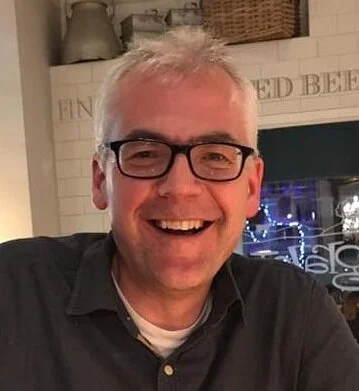Restoring Hope
The Covid-19 crisis has created a deficit of hope as people worry about their health, jobs and finance. It has exacerbated existing inequalities and highlighted new ones. We do not know how long this crisis will last, but recent analysis by the IMF has shown that while the health effects of an epidemic / pandemic last as long as the outbreak, the economic impact on those who are poor can extend for at least five years beyond the life of the disease. The same economic shock is not experienced by everyone.
In light of all this, we believe that our Christian faith has something unique to offer. It is not so much that the pages of Scripture contain a detailed economic policy that could, for instance, be cut and paste into the Autumn budget. But we do believe that our faith can provide a moral framework through which we can assess the range of policy options that are on offer.
For that reason, as part of Good Money Week, we are organising a series of online events to explore the way in which our faith, finance and the wider economy interact. In the process, we want to offer a vision of hope that can help us in these difficult times.
Our flagship event is an evening conversation with Dr Rowan Williams (former Archbishop of Canterbury) and Dr Ruth Valerio (Global Advocacy and Influencing Director, Tearfund). In addition, we have sessions which include a bible study exploring income and wealth, an exploration of ethical pensions and a discussion of how the £40 billion available in our churches each year can make a real difference.
£40 billion? – you might ask. Well, the average UK church has 40 adults; the average UK income is approximately £25k. There are 40,000 churches in the UK. If you multiply all that together you get £40 billion. Our vision is one where we take seriously the idea that all of our money is God’s money, not just the tithe, and that we have a moral responsibility to use all of it wisely. It is for that reason that we talk about the £40 billion restoration fund.
One strand of our work is about encouraging Christians and churches to take a pledge that in some ways is the economic equivalent of eco-church commitments. That pledge is not about giving away a tenth of our income to charity; it is about using 100% of our money with a Christian mindset. It is about asking questions of who we bank with, where our pensions are located, on which products do we spend our money, who provides our energy, our car, our clothes etc. It is about fostering ethical procurement policies and ensuring any church resources are invested ethically. It’s also about campaigning for tax justice – which is another strand of our work via Church Action for Tax Justice – to ensure that the tax policies we implement are those that have poverty, inequality and environmental sustainability at their heart.
Somewhat surprisingly, a recent OECD report argued that we need to reframe our global economic system in light of covid to focus less on growth and more on equality and the climate. One of the reasons they gave is that humans are not the homo economicus beloved of neoliberal economics, but rather inherently social beings for whom the well-being of others, community and social cohesion matter. In reading this, it struck me that they were, perhaps belatedly, coming round to an insight that theologians identified in the pages of scripture, indeed in the very nature of the trinitarian God, a few millennia ago. As people created in the image of God, we are in essence persons-in-relation, not individualised selfish beings.
It is this kind of application of Christian thinking to contemporary economics that we will be discussing at our events and we hope to see you there.
Dr Justin Thacker


